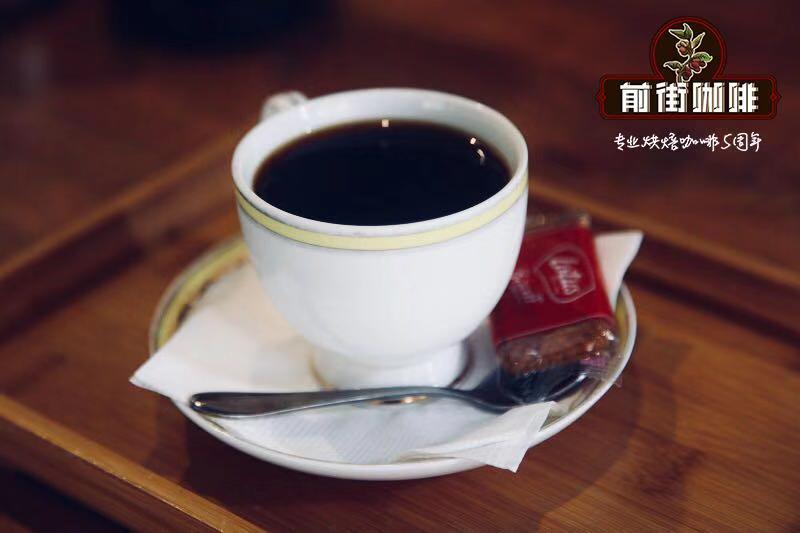What are the varieties of Yunnan coffee beans? how do Yunnan small grains of coffee taste?

Professional coffee knowledge exchange more coffee bean information please follow the coffee workshop (Wechat official account cafe_style)
A long time ago, a French missionary brought coffee to Yunnan from abroad and successfully planted it in a valley in Binchuan County, Yunnan Province. The coffee plants of this batch of coffee seeds are still blooming and bearing fruit in Binchuan County.
Yunnan coffee was planted on a large scale in the mid-1950s, with a planting scale of 4000 hectares at one time.
The suitable planting areas of coffee in Yunnan are distributed in Simao, Banna, Wenshan, Baoshan and Dehong in the south and southwest of Yunnan. By the end of 1997, the planting area of coffee in the province had reached 7800 hectares. At present, the planting area of the province accounts for 70% of the national area, and the output accounts for 83% of the whole country. Yunnan coffee has established the dominant position in China in terms of planting area and coffee bean production.
The suitable planting areas of coffee in Yunnan are distributed in Simao, Banna, Wenshan, Baoshan and Dehong in the south and southwest of Yunnan.
The closest variety of the original Arabica species, widely cultivated in Central and South America in the past, with conical adult trees, bronzed young leaves, long narrow leaves, long bean-shaped leaves, large berries, early ripening, nearly round fruit, and not resistant to strong light. It has excellent aroma and sour taste, but it is not resistant to leaf rust and needs quite a lot of shelter trees.
The coffee grown in Yunnan is Arabica, which has rich and delicate taste, strong smell, high acidity, slippery texture and not easy to have bitter taste. Under the conditions of Yunnan's unique geographical location and climate temperature, Yunnan coffee has a unique flavor of "strong but not bitter, fragrant but not strong, slightly fruity". After inspecting the coffee planting and primary processing base in Yunnan, international coffee organization tasting experts rated Yunnan coffee as the kind of small seed coffee processed by Colombian wet processing, which is the highest quality coffee in the world.
The two classic high-quality coffee varieties, Tieka and Bobang, are the main varieties of coffee in Yunnan. In 1991, Yunnan introduced Katim varieties from Kenya, which have stronger anti-virus ability and higher yield. At present, the Katim series is the most widely planted in Yunnan, while there are a small number of iron pickups and Borneo plants in Baoshan.
Typica is the most classic high-quality Arabica species, and the world-famous Blue Mountain Coffee and Mocha Coffee are almost all Arabica species. Tieka Coffee, native to Ethiopia and southeastern Sudan, is the most widely cultivated variety of coffee in the Western Hemisphere.
Bourbon, a variety derived from the iron pickup, was expanded by the French in 1708 on the island of Bourbon (now known as Reunion). Bourbon also has a beautiful aroma and rich flavor, higher than iron pickup in yield and growth, suitable for planting in the area of 1200-2000 meters. Bourbon coffee is a variety of small-grain coffee second only to iron pickup.
Catimor small seed coffee belongs to the high generation variety of Katim. Katim is not pure Arabica, it is a hybrid of Timor (which belongs to Robusta) and caturra (a variety of Bobang), so catimor has 25% Robusta.
END
Important Notice :
前街咖啡 FrontStreet Coffee has moved to new addredd:
FrontStreet Coffee Address: 315,Donghua East Road,GuangZhou
Tel:020 38364473
- Prev

Is mocha black coffee pure coffee? how about mocha black coffee? is there any flavor good?
Professional coffee knowledge exchange more information about coffee beans Please follow the coffee workshop (Wechat official account cafe_style) CafeMocha coffee is one of the oldest coffee, its history can be traced back to the origin of coffee. Mocha gets its name from the famous port of Mocha. In the 15th century, the outward transportation industry of the whole coffee country in Central and East Africa was not prosperous, and the Yemeni mocha was the main export near the Red Sea at that time.
- Next

How about Yunnan small grain coffee? how is the quality of Yunnan small grain coffee? are there several tastes of Yunnan small grain coffee good?
Professional coffee knowledge exchange more coffee bean information please follow the coffee workshop (Wechat official account cafe_style) Yunnan coffee cultivation and output accounts for 98% of the country, Yunnan coffee in the end what is good? Yunnan is the main coffee producing place in China, and more than 90% of the coffee in China is produced here. Baoshan, Lincang, Pu'er and Dehong are the main coffee producing areas in our province.
Related
- Beginners will see the "Coffee pull flower" guide!
- What is the difference between ice blog purified milk and ordinary milk coffee?
- Why is the Philippines the largest producer of crops in Liberia?
- For coffee extraction, should the fine powder be retained?
- How does extracted espresso fill pressed powder? How much strength does it take to press the powder?
- How to make jasmine cold extract coffee? Is the jasmine + latte good?
- Will this little toy really make the coffee taste better? How does Lily Drip affect coffee extraction?
- Will the action of slapping the filter cup also affect coffee extraction?
- What's the difference between powder-to-water ratio and powder-to-liquid ratio?
- What is the Ethiopian local species? What does it have to do with Heirloom native species?

